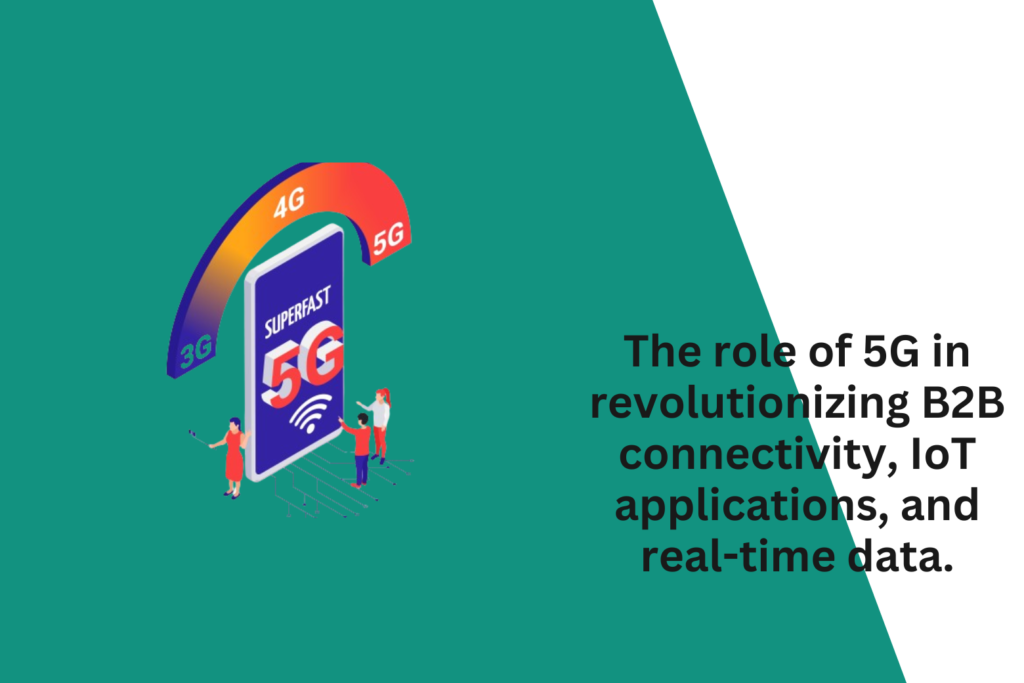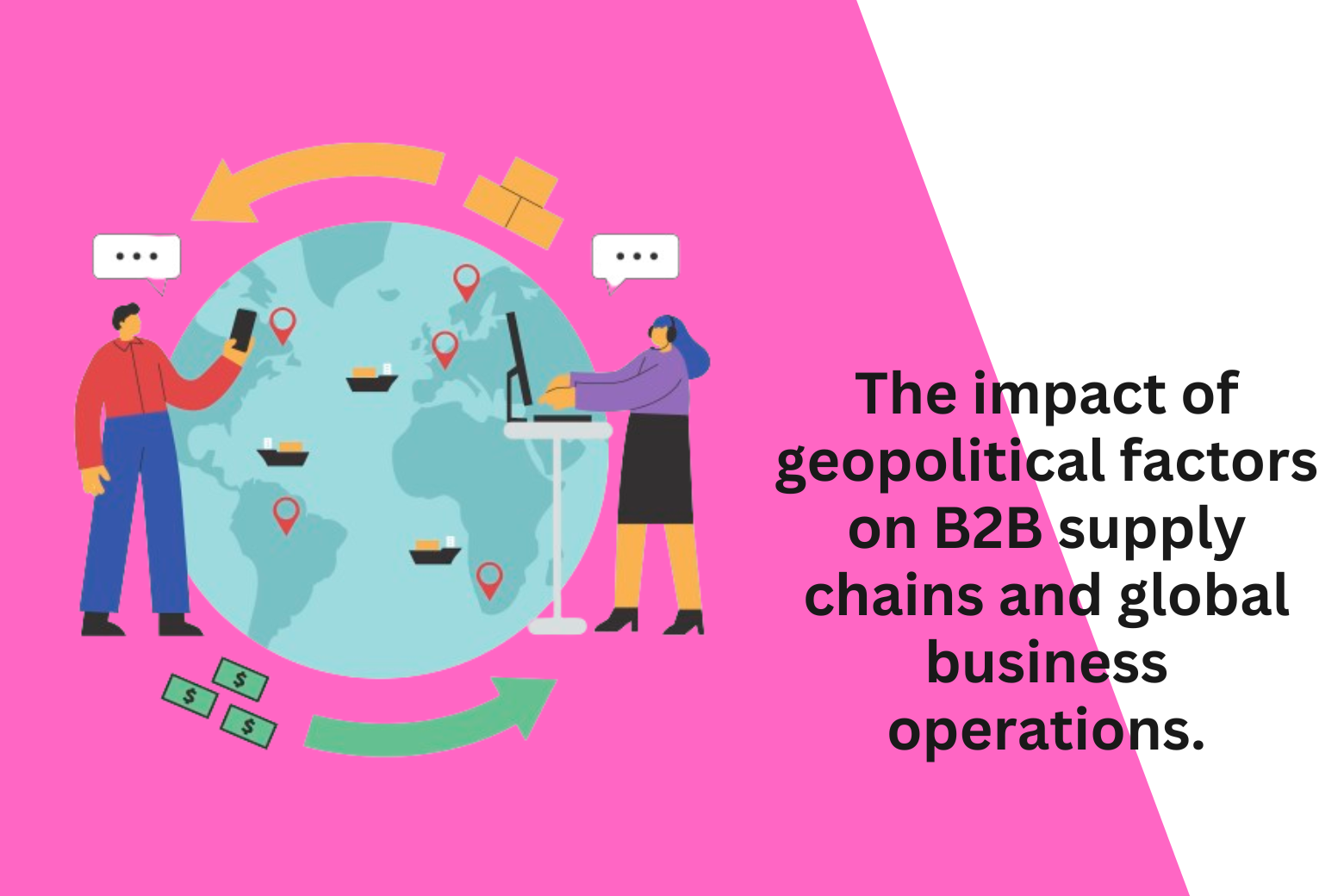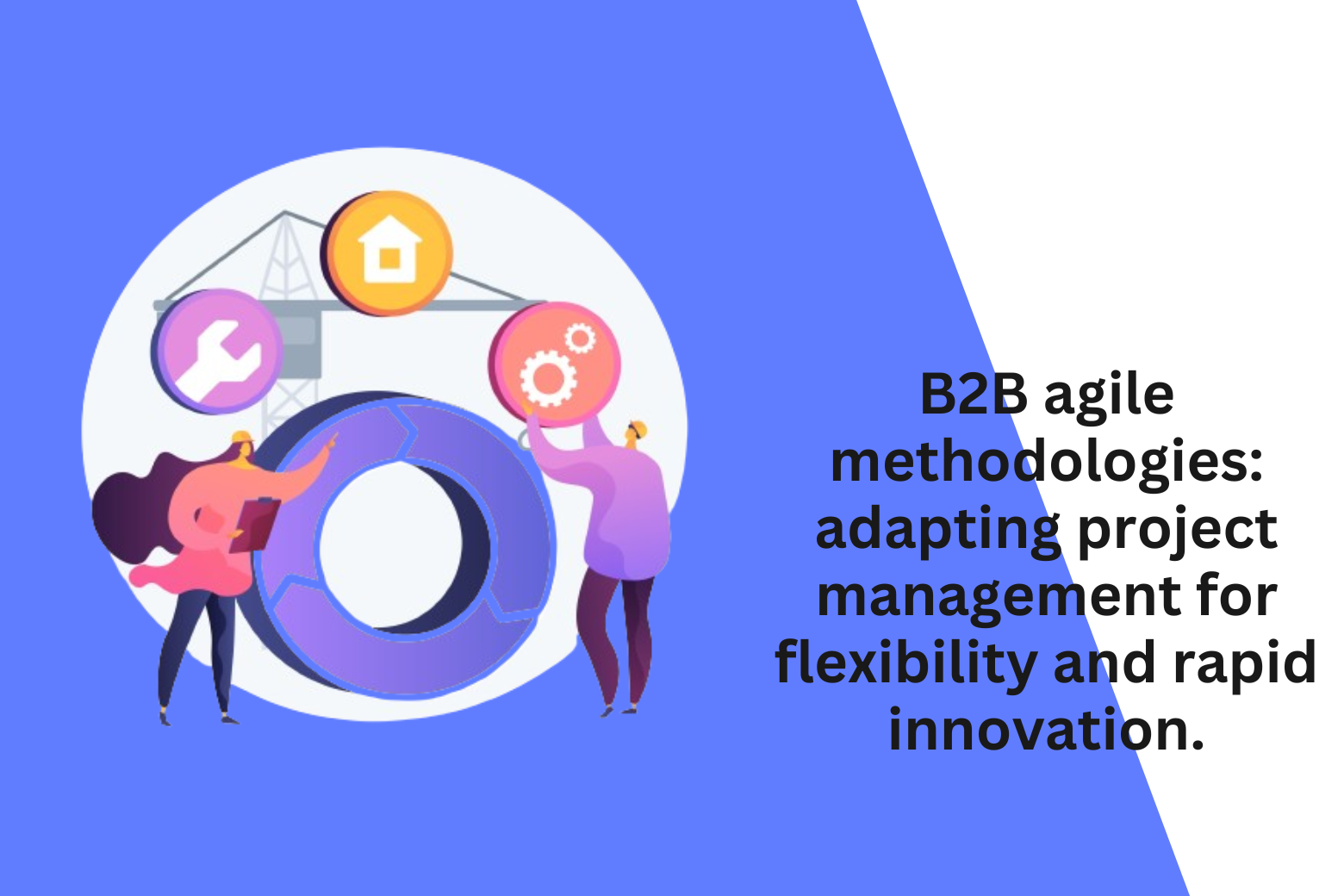
The deployment of 5G technology is revolutionizing B2B (business-to-business) connectivity, IoT (Internet of Things) applications, and real-time data processing. Here’s an in-depth exploration of how 5G is transforming these aspects:
1. Enhanced B2B Connectivity:
Higher Speeds and Lower Latency:
- 5G networks provide significantly higher data speeds and lower latency compared to previous generations. This facilitates faster and more reliable communication between B2B devices and systems.
Reliable and Consistent Connectivity:
- 5G enhances the reliability and consistency of connectivity, crucial for B2B applications that require uninterrupted communication. Industries such as manufacturing, logistics, and healthcare benefit from stable and resilient connections.
Massive Device Connectivity:
- 5G supports a massive number of device connections per square kilometer. This capability is essential for B2B scenarios involving a multitude of IoT devices, sensors, and connected machinery in smart factories, smart cities, and industrial settings.
2. IoT Applications:
Ubiquitous IoT Connectivity:
- 5G enables ubiquitous and reliable connectivity for a wide array of IoT devices. This is particularly advantageous for industries such as agriculture, transportation, and energy, where sensors and devices are distributed across large areas.
Low-Power IoT Devices:
- 5G includes specifications for low-power IoT connectivity, allowing for the deployment of energy-efficient and battery-operated devices. This is crucial for scenarios where power consumption is a critical consideration, such as agricultural sensors or remote monitoring devices.
Real-Time Monitoring and Control:
- With the low latency provided by 5G, real-time monitoring and control of IoT devices become more feasible. This is essential for applications like autonomous vehicles, industrial automation, and healthcare monitoring, where timely responses are critical.
Enhanced Data Security:
- 5G networks come with enhanced security features, addressing concerns related to the large-scale deployment of IoT devices. Improved encryption and authentication mechanisms contribute to safeguarding data transmitted between devices and systems.
3. Real-Time Data Processing:
Edge Computing Capabilities:
- 5G facilitates edge computing by bringing processing closer to the data source. This is particularly valuable for B2B applications requiring real-time data processing, reducing latency and enhancing the speed of decision-making.
Faster Data Transfer:
- The high data transfer speeds of 5G enable faster transmission of large datasets. This is critical for industries like finance, where real-time analytics and quick decision-making based on market data are essential.
Augmented and Virtual Reality (AR/VR) Applications:
- 5G supports high-bandwidth applications, such as augmented and virtual reality. This is beneficial for B2B scenarios like remote training, virtual product demonstrations, and collaborative design sessions, where high-quality and low-latency visual experiences are crucial.
Video Analytics and Surveillance:
- In industries where video analytics and surveillance play a key role, such as security, retail, and manufacturing, 5G enables real-time video processing. This enhances the efficiency of applications like facial recognition, object detection, and monitoring of critical areas.
4. Industry-Specific Transformations:
Manufacturing and Industry 4.0:
- 5G supports the implementation of Industry 4.0 concepts in manufacturing. The low latency and high reliability of 5G enable real-time communication between machines, facilitating predictive maintenance, quality control, and efficient production processes.
Healthcare:
- In healthcare, 5G contributes to advancements in telemedicine, remote patient monitoring, and medical IoT devices. The high-speed, low-latency connectivity allows for real-time sharing of medical data and enhances the capabilities of healthcare applications and services.
Logistics and Transportation:
- The logistics and transportation sector benefits from 5G through improved fleet management, route optimization, and real-time tracking of shipments. This results in enhanced operational efficiency and timely decision-making.
Smart Cities:
- 5G plays a pivotal role in the development of smart cities by supporting interconnected systems for traffic management, energy distribution, public safety, and environmental monitoring. The low latency ensures quick responses to dynamic urban challenges.
5. Challenges and Considerations:
Infrastructure Investment:
- The widespread adoption of 5G requires significant infrastructure investment. B2B entities need to consider the costs associated with upgrading networks and implementing 5G-compatible devices and equipment.
Security and Privacy Concerns:
- As with any connectivity advancement, security and privacy considerations are paramount. B2B organizations must implement robust security measures to protect sensitive data and ensure the integrity of communications.
Interoperability:
- Ensuring interoperability between different 5G networks and devices is crucial for seamless B2B connectivity. Industry standards and collaboration are essential to address interoperability challenges.
Regulatory Compliance:
- B2B entities operating in different regions must navigate diverse regulatory landscapes related to 5G technology. Compliance with local regulations and standards is essential for seamless deployment and operation.
In conclusion, 5G technology is playing a transformative role in B2B connectivity, IoT applications, and real-time data processing. Its impact spans various industries, driving innovation, efficiency, and new possibilities for business operations and collaboration. As businesses adapt to the 5G era, they can unlock opportunities for improved productivity, enhanced customer experiences, and the development of innovative products and services.



